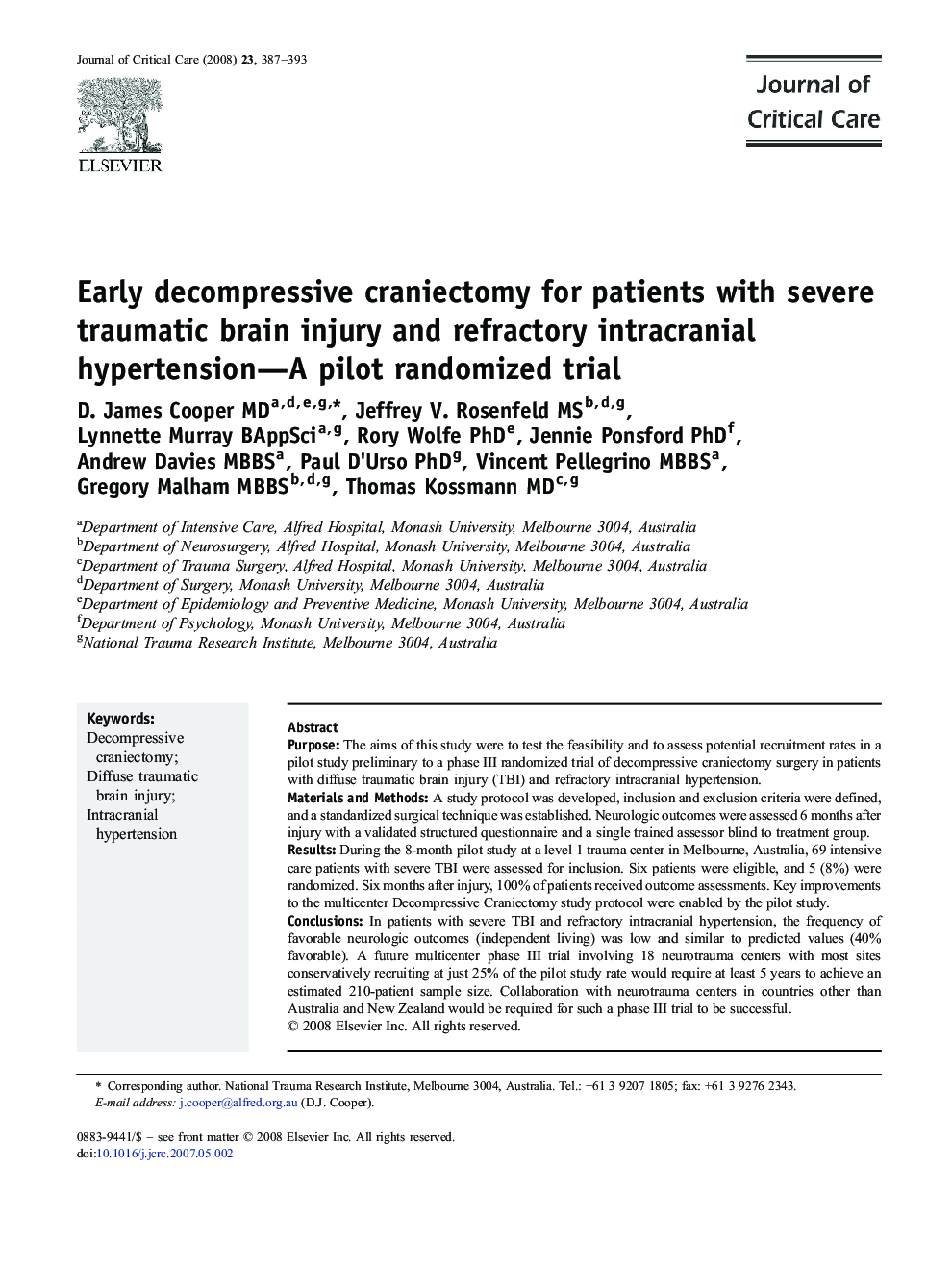| Article ID | Journal | Published Year | Pages | File Type |
|---|---|---|---|---|
| 2765662 | Journal of Critical Care | 2008 | 7 Pages |
PurposeThe aims of this study were to test the feasibility and to assess potential recruitment rates in a pilot study preliminary to a phase III randomized trial of decompressive craniectomy surgery in patients with diffuse traumatic brain injury (TBI) and refractory intracranial hypertension.Materials and MethodsA study protocol was developed, inclusion and exclusion criteria were defined, and a standardized surgical technique was established. Neurologic outcomes were assessed 6 months after injury with a validated structured questionnaire and a single trained assessor blind to treatment group.ResultsDuring the 8-month pilot study at a level 1 trauma center in Melbourne, Australia, 69 intensive care patients with severe TBI were assessed for inclusion. Six patients were eligible, and 5 (8%) were randomized. Six months after injury, 100% of patients received outcome assessments. Key improvements to the multicenter Decompressive Craniectomy study protocol were enabled by the pilot study.ConclusionsIn patients with severe TBI and refractory intracranial hypertension, the frequency of favorable neurologic outcomes (independent living) was low and similar to predicted values (40% favorable).A future multicenter phase III trial involving 18 neurotrauma centers with most sites conservatively recruiting at just 25% of the pilot study rate would require at least 5 years to achieve an estimated 210-patient sample size. Collaboration with neurotrauma centers in countries other than Australia and New Zealand would be required for such a phase III trial to be successful.
